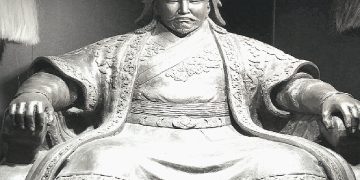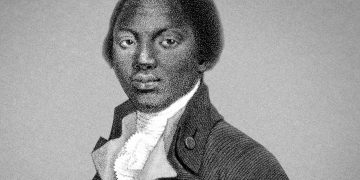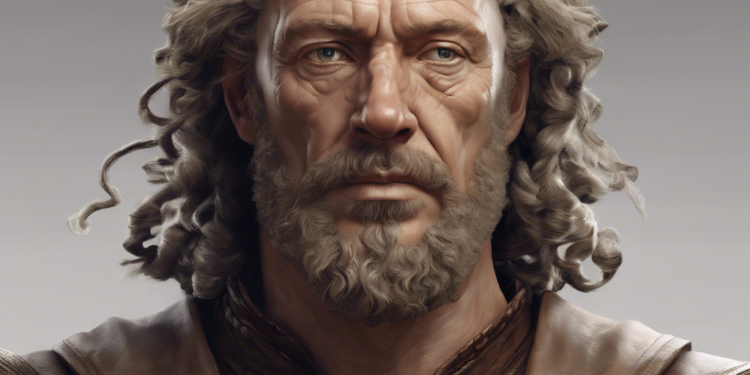Marcus Aurelius, the Roman emperor who reigned from 161 to 180 AD, is remembered as one of the most notable figures in ancient history. He was born on April 26, 121 AD, in Rome, and his reign marked the end of the Pax Romana, a period of relative peace and stability in the Roman Empire. While his tenure as emperor was marked by military campaigns and political challenges, Marcus Aurelius is perhaps best known for his philosophical pursuits and his book “Meditations.”

As a young man, Marcus Aurelius embraced the philosophy of Stoicism, which emphasized the cultivation of inner virtue and the acceptance of one’s fate. This philosophy would guide him throughout his life, both as a philosopher and as an emperor. In “Meditations,” Marcus Aurelius reflects on the principles of Stoicism and offers insights into his own struggles, dilemmas, and aspirations.
One of the key themes in Marcus Aurelius’ philosophy is the concept of living in the present moment and accepting the things that are beyond our control. He believed that true happiness and inner peace can be found by focusing on our own thoughts and actions, rather than being consumed by external circumstances. This idea is encapsulated in his famous quote, “The happiness of your life depends upon the quality of your thoughts.”
Marcus Aurelius was not only a philosopher-emperor but also a military strategist, a compassionate leader, and a source of inspiration for generations to come for the following qualities and more.
1. Military Campaigns: Marcus Aurelius was faced with numerous military campaigns during his reign as emperor. One of the most significant was the Marcomannic Wars, a series of conflicts against Germanic and Sarmatian tribes along the Danube frontier. Despite the challenges, Marcus Aurelius led his armies with strategic brilliance and resilience, often personally participating in battles alongside his soldiers.
2. Stoic Values in Action: Marcus Aurelius exemplified the values of Stoicism not just in his philosophical writings but also in his daily life. He practiced self-discipline, enduring hardships and setbacks with equanimity. He believed in the importance of self-improvement and constantly sought to better himself, both mentally and morally.
3. Humanitarian Efforts: As emperor, Marcus Aurelius demonstrated compassion and empathy towards those in need. He instituted several reforms to improve the living conditions of slaves and the poor, and he advocated for the fair treatment of prisoners and the humane treatment of animals. His commitment to justice extended beyond the boundaries of the Roman Empire.
4. Relationship with his Adopted Son: Marcus Aurelius had a close and influential relationship with his adopted son, Lucius Verus, whom he made co-emperor. They ruled together for several years until Lucius Verus passed away. Their partnership showcased Marcus Aurelius’ ability to collaborate and delegate responsibilities, as well as his commitment to ensuring a smooth transition of power.
5. Influence on Later Philosophers: Marcus Aurelius’ philosophical writings, particularly “Meditations,” have had a profound impact on subsequent thinkers. His ideas on self-reflection, resilience, and the pursuit of virtue continue to inspire philosophers, writers, and individuals seeking personal growth and fulfillment.
6. Legacy and Cultural Influence: Beyond his contributions to philosophy and governance, Marcus Aurelius left a lasting impact on Roman culture. His reign is often regarded as the last great period of the Roman Empire, and his emphasis on the Stoic ideals of duty and honor influenced subsequent rulers and leaders.
Despite the many challenges he faced as emperor, including wars, political intrigues, and the pressures of ruling a vast empire, he remained committed to his principles of virtue and integrity. He believed in leading by example and was known for his humility, fairness, and sense of justice. He sought to govern with wisdom and compassion, always striving to do what was best for his people.
Marcus Aurelius also had a deep reverence for nature and the interconnectedness of all living beings. He believed that we are all part of a larger cosmic order and that we should strive to live in harmony with the natural world. His writings often reflect on the beauty and transience of life, reminding us to appreciate the present moment and to be mindful of our actions.
In addition to his philosophical pursuits, Marcus Aurelius was also a patron of the arts and sciences. He supported the education of the Roman youth, encouraged the development of public infrastructure, and promoted the advancement of knowledge. His reign is considered a period of intellectual and cultural flourishing in the Roman Empire. More heroic stories here
Aurelius passed away on March 17, 180 AD, leaving behind a legacy of wisdom, virtue, and philosophical insight. His book “Meditations” continues to inspire readers around the world, offering timeless lessons on how to live a meaningful and fulfilling life. Marcus Aurelius remains an enduring symbol of the power of philosophy and the potential for personal growth and self-improvement.
Marcus Aurelius was not only a Roman emperor but also a philosopher whose teachings continue to resonate with us today. His commitment to virtue, his emphasis on living in the present moment, and his belief in the interconnectedness of all beings serve as a reminder of the importance of ethical living and personal introspection.
Marcus Aurelius’ contributions to philosophy and his leadership as an emperor have left a lasting impact on history, making him a figure worth remembering and studying. His teachings continue to resonate with people worldwide, reminding us of the importance of introspection, resilience, and ethical living. Marcus Aurelius’ legacy as a philosopher and statesman remains relevant and significant, making him an enduring figure in history.













Comments 1